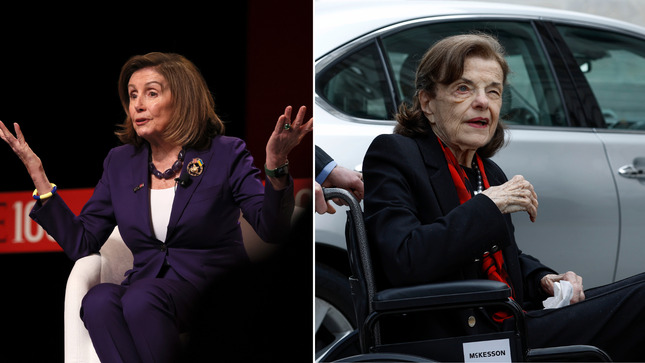Pelosi Says Some Male Senators Were in Worse Shape Than Feinstein, But She Won’t Name Names
“If she were a guy, you wouldn’t even hear about it," Pelosi told CNN, which is not an excuse for leaving the country's biggest state with one active senator.
Politics

Last month, Sen. Dianne Feinstein (D-Calif.) finally returned to Congress after a months-long recovery from shingles. The 89-year-old senator, who’s been in office for 30 years, is the chair of the Senate Judiciary Committee, and her absence delayed the appointment of many of President Joe Biden’s key judicial nominees. Amid demands that Feinstein retire and arguments that she’s no longer fit to serve, top Democrats have continued to defend her. Rep. Nancy Pelosi (D-Calif.), formerly Speaker of the House, has been more vocal than most.
On Wednesday, CNN reported that in late May, Pelosi doubled down on her support for Feinstein by blaming misogyny and “the left” for the scrutiny the senator has faced. “If she were a guy, you wouldn’t even hear about it. You wouldn’t even hear about it. You know it, and I know it,” Pelosi told a CNN reporter. She added that “important senators who were chairs of committees” had been in worse shape than Feinstein is now but didn’t face the same criticism.
-

-

-

-

-

-

-

-

-

-

-

-

-

-

-

-

-

-

-

-

-

-

-

-

-

-

-

-

-

-

-

-

-

-

-

-

-

-

-

-








































